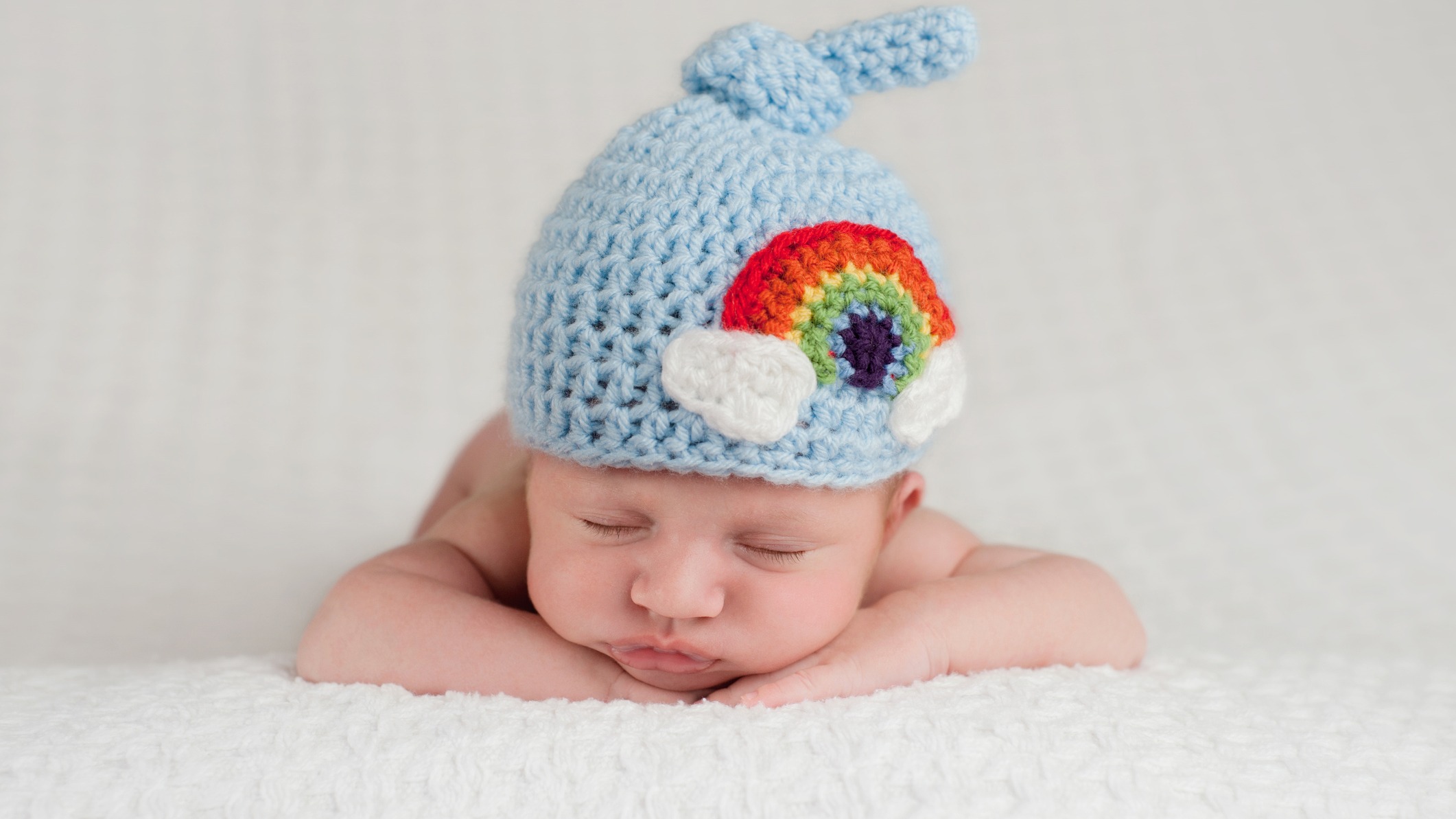
IN THIS ARTICLE
During the month of August, a precious day in which mothers and their partners can recognize fertility challenges has been established. The day is National Rainbow Baby Day.
What is National Rainbow Baby Day, you might wonder? A rainbow baby is a term used for a child that was born or adopted after a mother experienced pregnancy loss. With rainbows being a sign of hope and promise, the term reflects the hope the parents receive after after experiencing a loss. The day sheds light on not only the joy given to the families, but also the myriad emotions felt by families who have had to endure such pain and joy while trying to conceive.
When is National Rainbow Baby Day?
National Rainbow Baby Day falls on August 22. The day was founded by mom Alexis Delchiaro who experienced infertility and pregnancy losses.
“It’s a day to honor all the lives that have renewed our spirits after tragic loss…celebrating the rainbow after the storm,” Alexis shared in an Instagram post.
Alexis chose August 22 as it marked the day that she had her rainbow baby.
“Maybe the reason I struggled with infertility and then become an adoptive mama AND a bio mama is so that I could be a voice for those who cannot speak,“ Alexis said.
She went on to express what some mothers have had to endure.
“[It is] for the women who have cried on the bathroom floor after yet another negative pregnancy test, for babies who are gone but not forgotten, for the couples whose bodies physically ache under the weight of empty arms,” she added.
The day enables parents to grieve over what was lost and to celebrate what was given to them.
What is a rainbow baby?
A rainbow baby is a baby born to or adopted by a mother who previously experienced a miscarriage. Rainbow babies reflect the hope that can occur after a storm has passed.
By establishing a day that nationally commemorates the give and take of fertility challenges, it provides healing and closure to parents.
“Maintaining a connection to those that we’ve lost is really what people need. Helping them to maintain that connection is healing,” Leah Gooen, a licensed clinical social worker and advanced clinician, said, according to Health Matters, a New York Presbyterian Hospital publication. Rainbow Baby Day is there to help parents navigate such trying and celebratory times.
And while some families embrace the term “rainbow baby,” others do not.
One mom, Teresa Mendoza, who experienced a miscarriage shared how she was not a fan of the term.
“Pregnancy and infant loss is already so very stigmatized and shrouded in families feeling isolated and pressure to ‘move on,'” Teresa told Today. “My kids are siblings. One of them is dead and others are alive. I don’t feel the need to call their existence anything other than they are their sister’s brothers and she is their sister.”
No matter how parents choose to approach child loss, they must know that they are supported. National Rainbow Baby Day is one way of showing that support.
Ways to recognize the day
If you are a parent who has experienced having a rainbow baby, then here are some ways to help you celebrate the day.
1. Share your story with the hashtag, #NationalRainbowBabyDay, and join other mothers who have experienced fertility challenges.
Being a part of a larger community can reduce the feelings associated with loneliness and anxiety. Join a group that makes you feel safe and that lets you know you are supported.
2. Create a keepsake box that holds items from your rainbow baby.
Locate items that capture all of what you were feeling before and during the pregnancy and keep them in a special box. This box can be created as a family or it can just be your keepsake box.
3. Have quiet time to reflect on your children — those who are with you and those who are with you in spirit.
Take some time on your own to tap into your feelings about what your rainbow baby means to you.
4. Consider giving to an organization that helps mothers with their fertility.
If there is an organization that you have always liked or that you have been supported by, give to that charity or nonprofit and help it be a source for other mothers.
Whether it is quiet time for yourself or a time to be around others, be sure to seek comfort during what may be a very emotional day.




